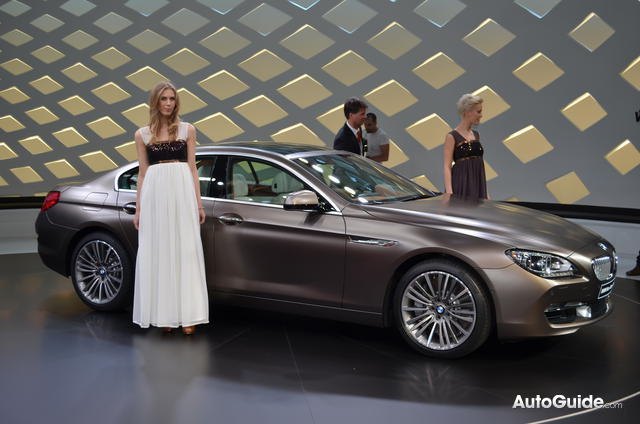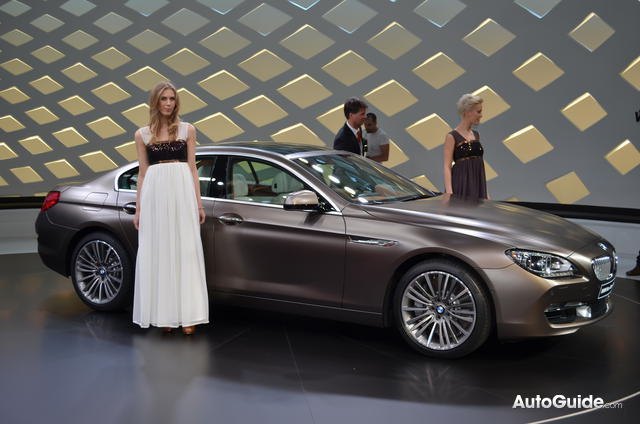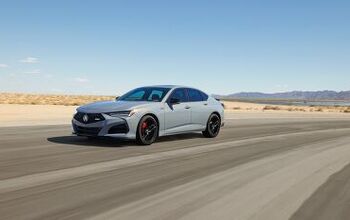5 Views
Geneva 2012: BMW 6 Series Gran Coupe Corners The "Looks Kind Of Like A 5…Maybe A 7…Sort Of" Market Segment
by
Derek Kreindler
(IC: employee)
Published: March 6th, 2012
Share
Despite looking very much like a sedan, BMW unveiled their 6 Series “Gran Coupe” at the Geneva Auto Show, as it engages in yet another asinine tit-for-tat response to competing product from Audi and Mercedes-Benz.
Engines included a gasoline or diesel inline six (with turbocharging) and a twin turbocharged V8. An 8-speed automatic transmission along with a start-stop system, is standard, and drivers can hit an ECO PRO button if they suddenly feel compelled to save the planet. Sales are expected to begin this summer – we’re not sure why, but they are.
Thanks to AutoGuide.com for the live photos
Derek Kreindler
More by Derek Kreindler
Published March 6th, 2012 11:11 AM
Latest Car Reviews
Read moreLatest Product Reviews
Read moreRecent Comments
- Kwik_Shift_Pro4X I fell asleep looking at that image.
- Verbal Rented a Malibu a while back. It was fine, if a bit gutless.I get that Detroit wants to go all-in on high profit margin SUVs and blinged-out MAGA trucks. Everyone has known for decades that they can't compete on price in the affordable sedan space. So now all of Detroit's sedans are gone except for a couple of Cadillac models.But you'd think that just one of the domestic brands could produce a fun, competitive and affordable sedan. Just one? Please? Anyone? Bueller?
- 3-On-The-Tree I wouldn’t even use Ford as a hearse for fear of being late to my party.
- SCE to AUX Norway is in Europe, and Tesla is an American automaker - no problems there.I wouldn't use Ford as the bellwether.https://www.reuters.com/business/autos-transportation/tesla-extends-lead-norway-evs-take-record-82-market-share-2024-01-02/https://elbil.no/english/norwegian-ev-policy/
- Steve Biro If the U.S. government wants to talk about banning all connected cars - or at least the collection and sharing of information from said vehicles - I’m all ears. Otherwise, don’t waste my time.


















































Comments
Join the conversation
Is this that new K9 they've been testing on Korean highways?
The 7 series now has two coupes.